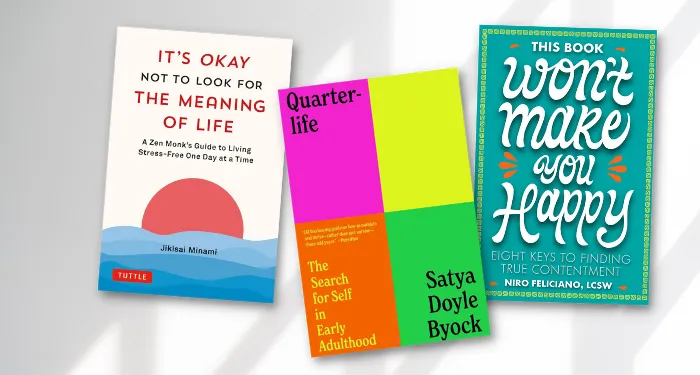
8 Inspirational Books on Finding Your Purpose
In 2018, I had resigned from my publishing job. I was thriving and on my way to climbing the editorial ladder. It was the beginning and also the peak of my career; why did I end it prematurely? I threw in the towel without having another job lined up. At the time, I felt like a boat without a sail, drifting aimlessly across the sea with no destination in mind. In between regretting and standing firm on my decision, I lapped up self-help literature, searching for books on finding your purpose because I didn’t know what else to do with my life. There have been uncertainties about which career path I should take and moments of doubt about myself and my choices. My life was at a standstill — it felt like a career suicide.
As adults, we can lose sight of our life’s purpose. For some, it occurs earlier in their life. According to a December 2022 study conducted by the Harvard Graduate School of Education, three in five young adults, or 58% (aged 18 to 25), experienced a “lack of meaning or purpose.” In addition, half of the young people who participated in the study said they felt that their lives had a “lack of direction.” The study cited several reasons, including finances, pressure to succeed, a sense that the world is unraveling, and social media.
If you’re one of those and feel this way, remember that you’re not alone.
To help make sense of what you’re going through, I’ve compiled a list of eight books on finding your purpose. In here, there’s a book by a monk offering wisdom based on Buddhist ideals, a book that helps you do the inner work by finding contentment, a book for someone who has been through adversity and survived, a book on how to deal with adult anxiety, and a book for older people and how they could navigate the later years.
These books aren’t meant to diagnose or treat this state of mind, but they may help you on finding an anchor. If you have serious concerns, however, it’s best to seek professional help.
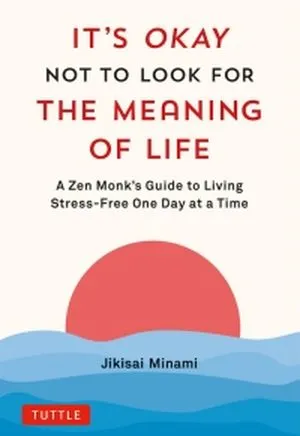
It’s Okay Not to Look for the Meaning of Life: A Zen Monk’s Guide to Living Stress-Free One Day at a Time by Jikisai Minami (April 2024)
In this book, a monk shares some unconventional wisdom. He does, however, point out that while this is not a Buddhist book, it does employ Buddhist techniques.
He begins by writing that he has met people who don’t feel fulfilled in their lives despite appearing happy on the outside. He has a feeling that something’s wrong with them, and though he wasn’t able to help them, he hopes that reading this book will help you find clarity.
In the latter part of the book, he delves into many subjects in life and death that are common in Buddhism, including your own self (how you can improve and accept things you can’t control), hopes and dreams, emotions, and death. His thought-provoking commentaries may change your perspective on the world.
“It’s okay not to constantly look for meaning,” he writes, adding that you don’t need to have a “meaningful life” for a “life worth living.”
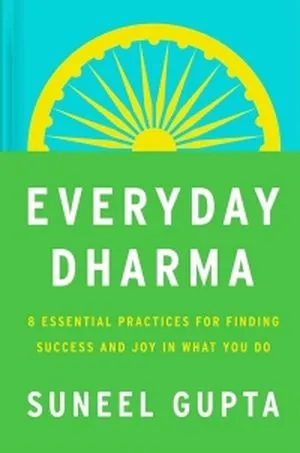
Everyday Dharma: 8 Essential Practices for Finding Success and Joy in What You Do by Suneel Gupta
The author describes dharma as a “calling,” “essence,” or “inner necessity,” something you truly want to do in life. In this book, he shares some practices he learned from his journey, which he wrote when he returned to India after years of not following his true aspirations, leaving him burnt out, lost, and frustrated with his current situation.
He contends that success begins within and radiates outward. He promises that this book will help you “reconnect with your life,” regardless of where you are in it.
With anecdotes about other people and their dharma, the book’s unorthodox wisdom may be helpful for those seeking something different.
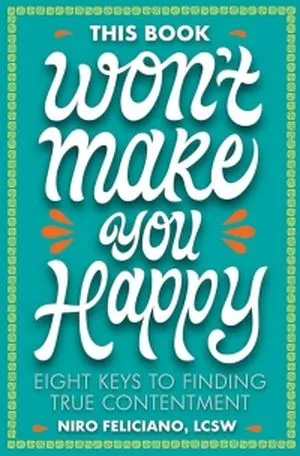
This Book Won’t Make You Happy: Eight Keys to Finding True Contentment by Niro Feliciano, LCSW
The author suggests ways to achieve contentment rather than happiness, drawing on her experiences as a therapist as well as her personal experiences to provide advice. She argues the importance of contentment over happiness, saying that contentment is what keeps us on track.
On the subject of finding purpose, she writes that “our culture these days appears to pressure us to find our purpose, fight for happiness, and unleash our passions” but that this can be dangerous. “We don’t need to earn our value as human beings.”
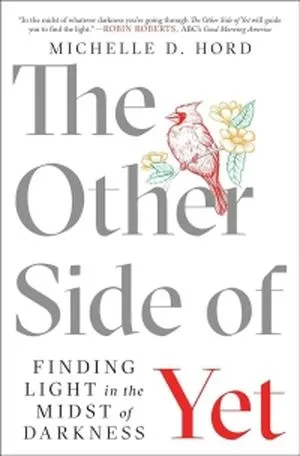
The Other Side of Yet: Finding Light in the Midst of Darkness by Michelle D. Hord
The author begins by describing how she felt after her husband murdered their child. “There are days when it feels like I will never be able to ‘see’ my way through,” she writes. Following this horrific tragedy, she wonders what comes next for her. Surely, she won’t be able to reclaim her old life; she feels uncertain about how to proceed.
That’s the foundation of this book, as the author draws on her own experience to provide solace for people who are questioning their life’s purpose, “searching for meaning in the pain.” “Although there is loss, we also have so much in our lives to still love. To still share. We must give ourselves permission to once again experience joy,” she writes.
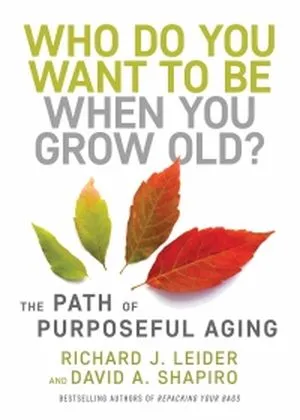
Who Do You Want to Be When You Grow Old?: The Path of Purposeful Aging by Richard J. Leider and David A. Shapiro
The book is filled with advice for people in their late stages of life. It’s full of self-reflection, with a strong emphasis on inner work. The authors argue that if we can rethink our lives and sense of purpose, we can live a “more fulfilling, meaningful life at any age.”
In here, they mostly explore the so-called late-life crisis, in which older people often experience loss. According to them, this is a period “characterized by dissatisfaction; a loss of identity; an expectations gap; and the feeling that life has peaked, so it’s all downhill from here.” However, they contend that “we don’t find our purpose, because it’s not something we have to go out and look for; rather, it’s something we unlock by going inside—by getting to know what we stand for, what we won’t stand for, and who stands with us.”
Both of the authors also acknowledge their wealth and privilege as white men. Though they say they can’t promise you’ll find purpose in this stage of your life, they can offer “tragic optimism” instead.
Readers in their 60s and up who are curious about what comes next in their lives may find this useful.
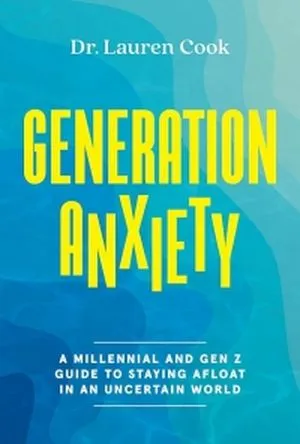
Generation Anxiety: A Millennial and Gen Z Guide to Staying Afloat in an Uncertain World by Dr. Lauren Cook
When we’re lost and don’t know where to go next, we may feel anxious. The anxiety sets in, and we lose trust in ourselves. “Some things in life don’t make any sense. And yes, there’s plenty in life to be afraid of … It’s chock-full of nonstop unpredictable events,” the author writes.
If you’ve always struggled with facing fears, the book may “offer you a road map.” In it, the author delves into the realm of anxiety, explaining why you’re stuck there and encouraging you to get out. She also explores its various manifestations, such as in relationships, at home, in our body, and elsewhere, using anecdotes from her clients through her work as a therapist.
While sharing accounts, she also acknowledges her various privileges as a white woman and never claims to understand the anxiety that marginalized communities face.
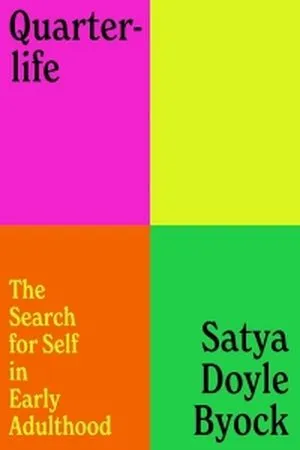
Quarterlife: The Search for Self in Early Adulthood by Satya Doyle Byock
This is aimed at people experiencing a quarterlife crisis or those aged 16 to 36 who are “desperate to change things about themselves and their circumstances, who is exhausted or scared, depressed or anxious, maybe even hopeless.”
The author draws on her experience, beginning with her leaving a job at a startup without a backup plan, hoping and knowing that there’s something better out there for her. She writes that Carl Jung’s wisdom inspired her during this time.
The book is dense and somewhat academic, with anecdotes and experiences from quarterlifers.
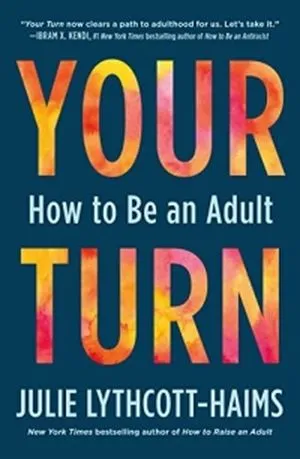
Your Turn: How to Be an Adult by Julie Lythcott-Haims
During our tumultuous adult years, we may feel lost sometimes. We study, work, find love, and then what happens next?
In the book, the author swears that there’s “no track, no path, no lockstep plan that equals adulting that you’re somehow failing to adhere to” and that “you get to decide where to be out there, what you’re doing, and how to navigate toward it.”
Nevertheless, she walks you through the process of becoming an adult, focusing on self-work such as financial matters, how to get along with others, being good, stopping pleasing others, taking care of yourself, how to cope when things are difficult, and picking yourself back up, among other things. It’s full of simple and practical but broad pieces of advice that can be applied at various stages of adulthood.
Five years after that dilemma, I no longer feel that way. As I grew older and wiser, I discovered a sense of purpose and realized what I wanted in life. It took time, but I feel like I have a better anchor now.
The books on finding your purpose above may not cover all of the things that have brought you to this point. If you’re currently going through this rough patch, I sympathize with you and believe that you’ll feel better soon. I know that you’ll find the light at the end of the tunnel, just as I have.
For more self-reflection, here are books about finding yourself.









